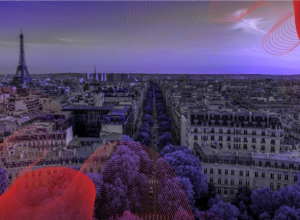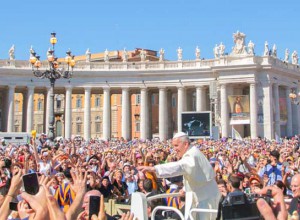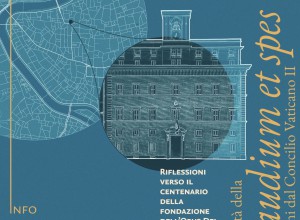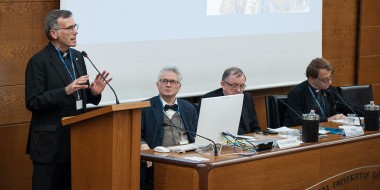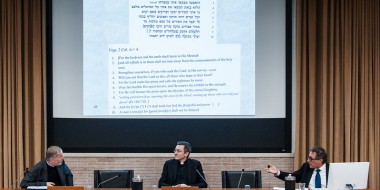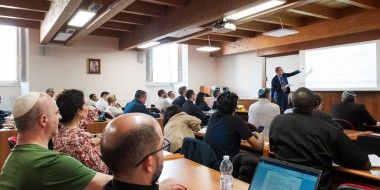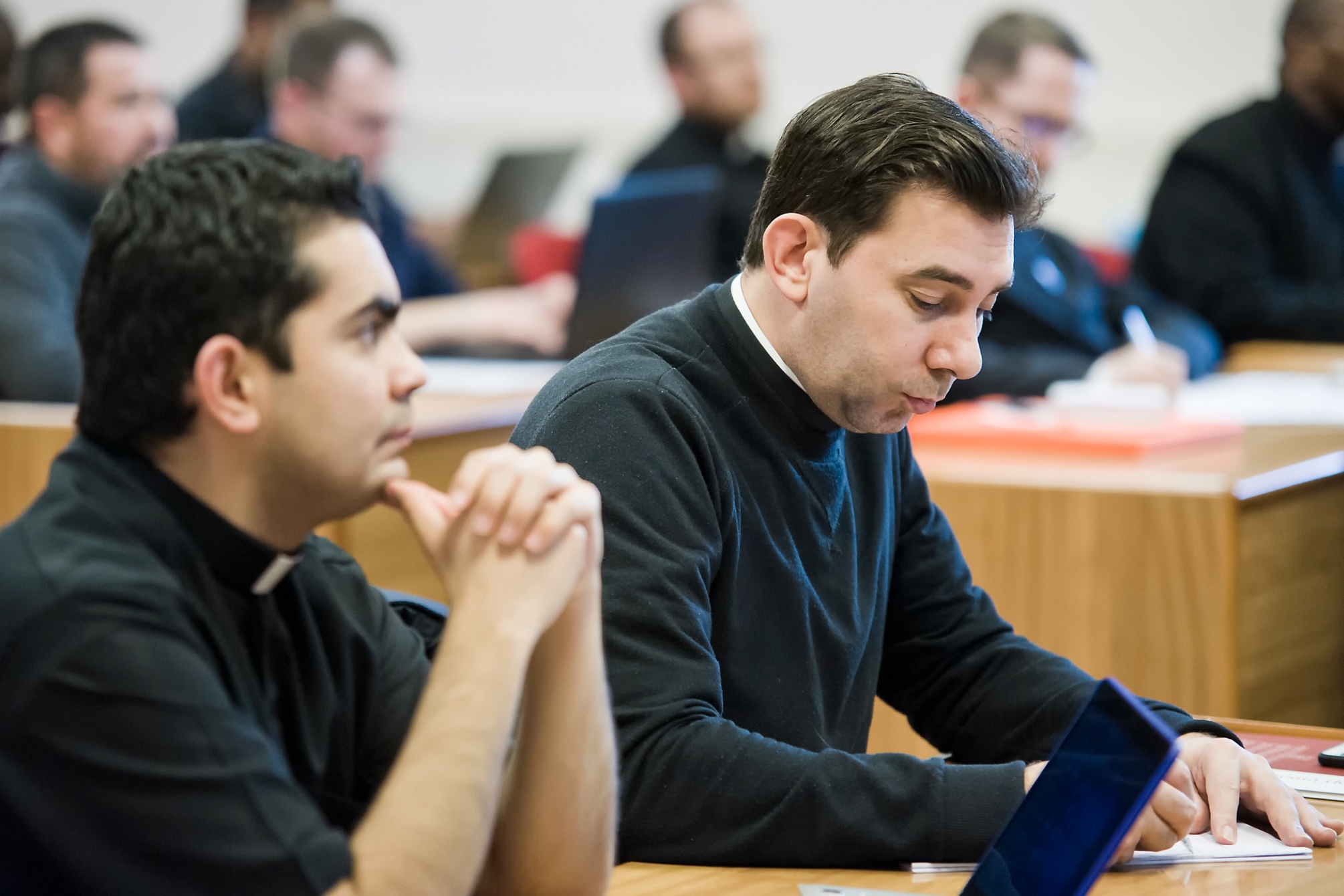
In the context of the pluralism of modern cultures, the School of Theology offers a program of formation marked by a strong Christocentrism, an orientation based on the conviction that a deep knowledge of the mystery of Christ is the perennial foundation for the transformation of human beings and the world.
The School’s formative agenda in both the educational and research levels is translated into the following choices of method and content:
-
A presentation of the intrinsic connection between the revealed truths as expression of the mystery of the Trinity and of its communication of love in Christ;
-
The mystery of the whole Christ, Head and Body, as the deep foundation of the essentially ecclesial character of any theological reflection–communion with the Church, with her doctrine, tradition, liturgy etc., is a necessary premise to any pursuit of theological knowledge of Revelation;
-
The intimate connection between the divinity and humanity of Christ as the light by which one understands the relation between faith and reason, both in theology and in one’s worldview, consequently deepening the meaning of created realities and their autonomy, and giving rise to a spirit of openness to a peaceful encounter with the natural, historical and social sciences;
-
The call to holiness, rooted in Baptism, and further diversified according to the various charisms and vocations in the Church, as a background to a more coherent vision of the theological and ethical dimensions of Christian existence.
- Il lavoro della Facoltà si struttura in base ad un Istituto di Liturgia e a cinque Specializzazioni: Teologia dogmatica, Teologia morale, Teologia spirituale, Teologia biblica e Storia della Chiesa.
Sezione:

